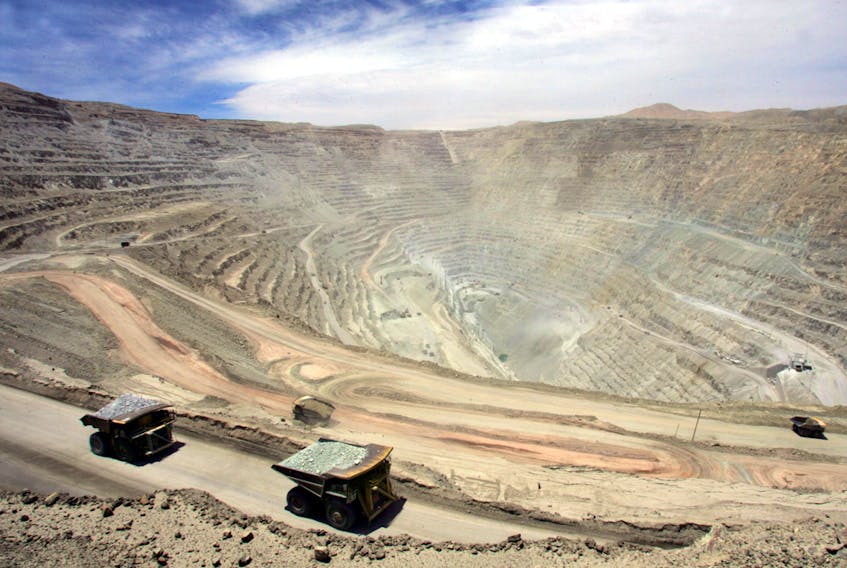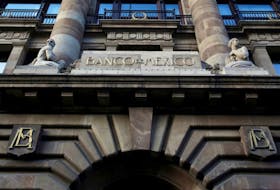As it battles federal criminal charges in Canada, Montreal-based SNC-Lavalin Group Inc. has found itself in a dispute with yet another government entity — the Chilean state-owned copper miner Codelco.
On Monday, Codelco fired SNC from a $350-million contract to build two sulphuric acid plants, citing construction delays and quality issues.
It marks a third front on which the giant engineering and construction company has gotten crosswise with a government entity, in addition to Canada and Saudi Arabia. The incident underscores how much of SNC’s expansive business — which includes work on nuclear facilities, construction and design for oil and gas facilities and also clean power projects — is connected to government-funded contracts.
"Having a contract terminated by the world’s largest copper miner is a clearly a hit to SNC’s reputation within the mining industry,” Yuri Lynk, an analyst with Canaccord Genuity Corp. wrote on Tuesday. “It is extremely rare for a project sponsor to cancel a contract … especially so close to completion.”
Derek Spronck, an analyst with RNC wrote that the latest news suggests SNC’s relationship with Codelco has “further soured” and could make any recoveries of the money it already spent to build the project more difficult.
Still, both analysts described the impact of the incident as minimal, in part because mining accounted for less than five per cent of SNC’s revenue in 2018, and the company has already written off the entire Codelco project as a $350-million loss; but also because the company is shifting its business strategy away from such high-risk construction projects.
Now, as SNC looks to shift more into decommissioning nuclear sites in the U.S. and Canada and clean energy projects, it is increasingly threatened by a potential criminal conviction in Canada on charges it paid millions of dollars in bribes to Libyan government officials in exchange for lucrative contracts there.
Mora Johnson, an Ottawa-based lawyer who previously served as head of the Canadian delegation to the OECD working group on bribery, said that a conviction could well have consequences outside this country.
Johnson said five multilateral development banks, including the World Bank, and others in Asia, Europe, Africa and the Americas, signed a “cross debarment” agreement, in which they stipulated that an organization debarred by one bank will be sanctioned by the others.
“There will be a wide range of approaches that different governments take, but there will undoubtedly be some governments for which a conviction or perhaps even a deferred prosecution agreement could disqualify a company,” she said.
At home, news headlines have for weeks been dominated by articles about whether Prime Minister Justin Trudeau improperly pressured his former attorney general Jody Wilson-Raybould to settle the federal criminal charges with SNC, so that the company can avoid the harshest consequences of a conviction.
There will undoubtedly be some governments for which a conviction or perhaps even a deferred prosecution agreement could disqualify a company
Mora Johnson
SNC chief executive Neil Bruce has said a conviction would likely bar his company from bidding on federal contracts in Canada, which would limit its ability to work here.
Meanwhile, in Saudi Arabia — where during the last decade SNC has completed more than 300 projects worth $12 billion — Bruce said the company can no longer expect future work as a result of a diplomatic rift that opened last year when Foreign Minister Chrystia Freeland tweeted about the Middle Eastern country’s poor record on human rights.
SNC refuses to disclose exactly how much of its $14.9-billion backlog involves government-related work, or to what extent a criminal conviction in Canada threatens its overall business.
“I’ve looked into this and we do not provide this percentage externally,” an SNC spokeswoman told the Financial Post via email.
The company’s stock has declined nearly 46 per cent over the last 12 months, hitting a low of $33.30 in February. The shares were trading Tuesday at $34.28 on the Toronto Stock Exchange, down 0.2 per cent on the day.
In February, Bruce was asked on an investor conference call whether the company is considering a sale or a merger, and said a special board committee has already hired advisers to explore future options.
“We are constantly looking at … all of the future opportunities,” he said.
By Gabriel Friedman
• Email: [email protected] | Twitter: GabeFriedz
Copyright Postmeida Network Inc., 2019









